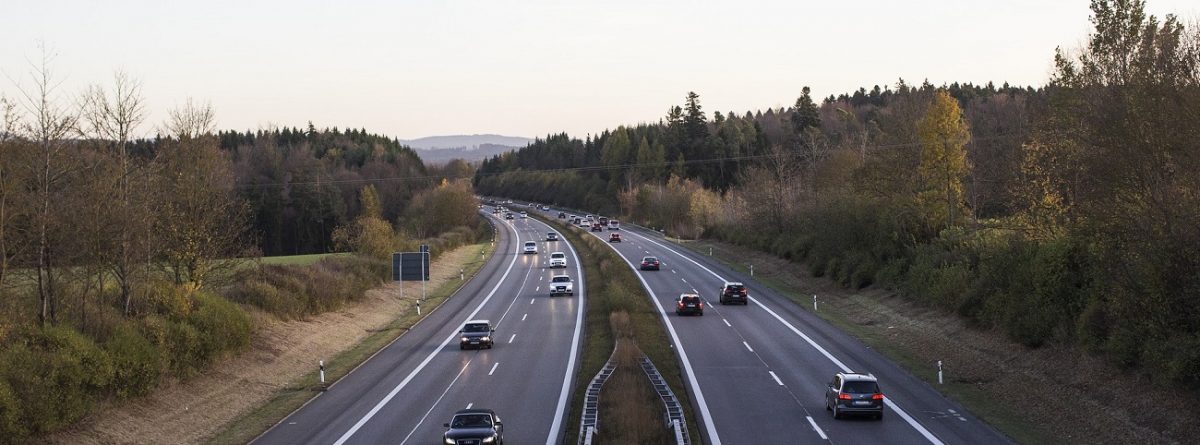There are 4 main reasons why people are killed or badly hurt in road traffic collisions, but they’re all avoidable.
- Distractions can be deadly. You’re 4 times more likely to be killed or seriously injured if you use a mobile phone when you’re driving. Sat navs, audio systems and your passengers can distract you too.
- Seatbelts save lives. It takes just a couple of seconds to put your seatbelt on but if you don’t bother, you double your likelihood of dying in a crash.
- Speed should always be appropriate for your route, the road and the weather.
- Even small amounts of drink or drugs in your system can affect your reaction times, judgement and coordination.
Maintain a safe vehicle
As a driver, you’re responsible for making sure your vehicle is well maintained and road worthy.
The depth of tread on your tyres is critical when it comes to accelerating, braking, steering and cornering – and even more so when the roads are wet.
The UK minimum legal tread depth is 1.6mm. But are you among the 65 per cent of drivers who don’t check their tyre treads often enough? All you need is a 20 pence piece and two minutes to watch this Tyresafe video.
Plan ahead
Planning your journey and leaving plenty of time for the trip will reduce your risk of having an accident. Each season brings its own challenges for drivers – winter more than any. Check out these hints and tips from the AA.
Driving in winter is unlike driving at any other time of the year. The road conditions and possible hazards are unique to the season, but there are simple ways to prepare.
Is your vehicle ready for winter? Think POWDERY!
Petrol (or diesel) – don’t run out of fuel
Oil – check levels once a month
Water – check radiators and screen wash monthly
Damage – check wipers, lights for signs of damage and wear
Electrics – are lights, indicators and controls all working properly?
Rubber – are tyres inflated, legal and damage free with good treads?
You – are you fit to drive? Did you sleep well? Are you taking medication that could make you unsafe?
Having a winter emergency kit in your car at all times is a great idea. We suggest carrying these items from the start of winter and hope you won’t need them:
- Ice scraper and de-icer
- Torch and spare batteries, or a wind-up torch
- Warm clothes and blankets for you and all passengers
- Boots
- First aid kit
- Jump leads
- A shovel
- Road atlas
- Sunglasses (the low winter sun and glare off snow can be dazzling)
Check the weather, forecast and road conditions before you set off. They may change so pay attention and listen to reports on the radio. Even if you drive the same way every day, it’s never the same road twice.
Driving in bad weather can be tiring because you concentrate more. Be prepared to take regular breaks to refresh and recheck the conditions on your journey.
Children must use a booster seat until they are 135cm tall or 12 years of age. It’s the law. However, our advice is that they should actually travel in an appropriate restraint until they’re 150cm tall.
This is because adult seatbelts might not fit them properly. There are a few different types, and some only suit certain cars, so make sure you get yours checked by a professional.
You need to get the right seat for your child’s weight and height, and check that it’s fitted correctly for every journey.
Don’t forget, child seats are only designed for one impact. Never re-use a seat that’s been in an accident or buy one second hand, even if it looks OK.
Motorcyclists account for just 1% of total road traffic, but for 19% of all road user deaths.
Some of the most common reasons for motorcyclist collisions include:
- Bends on country roads – reduce your speed before the bend so that you have more room to manoeuvre.
- Collisions at junctions – this can be down to a driver failing to give way, stop or misjudging your speed. Always anticipate and consider how you would deal with a vehicle unexpectedly pulling out in front of you.
- Collisions while overtaking – overtaking requires skill, judgement and a good knowledge of your bike’s acceleration capacity. Snap decisions to overtake can be dangerous. Don’t overtake when approaching bends, junctions, lay-bys, crossings, hills or dips in the road or where signs or road markings prohibit you from doing so.
- Shunts – caused by riding too close to the vehicle in front or the vehicle behind you being too close.
- Loss of control – often caused by failing to adjust your riding to deal with the different road conditions.
Personal protective equipment
Wearing high quality personal protective equipment (PPE) when riding reduces the risk of you being killed or seriously injured on the road.
Wearing the correct PPE is as important to your safety as servicing your bike and knowing how to ride it safely. It’s so important that you invest and wear the correct protective gear.
Improving your skills
Whatever your level of riding experience, everyone can benefit from extra training to improve their safety on the road. Further training can improve skills, refresh knowledge and increase confidence when riding.
Our Fire Bike Team is offering a free 3 hour ‘Biker Down’ course. It covers:
- accident scene management
- First Aid for motorcyclists
- the science of being seen.
For more information email biker.down@twfire.gov.uk or visit the Biker Down Facebook page.



